
“Leaders are paying more attention to young people – we can rewrite the path of education”
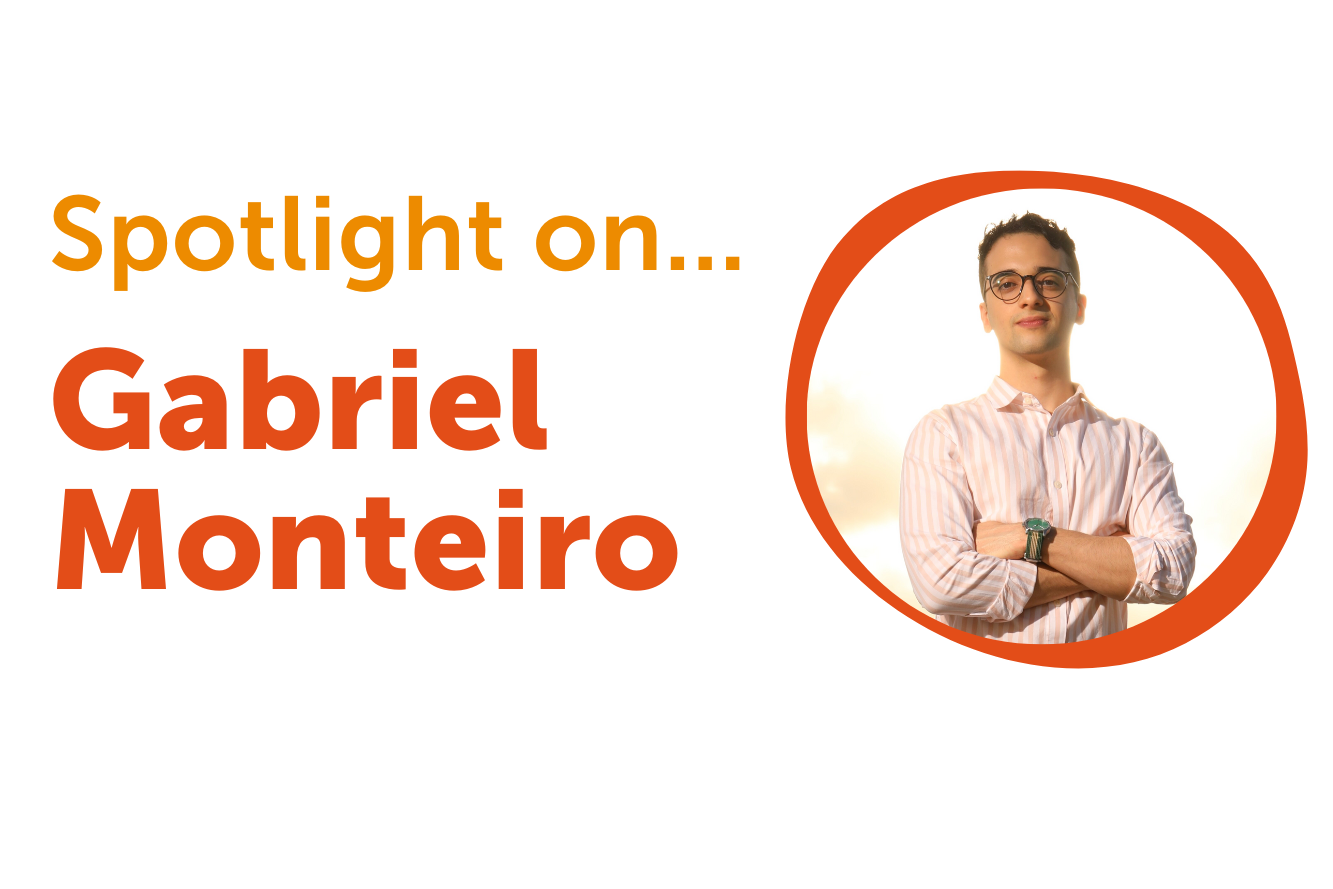
Global Youth Ambassadors, United Nations General Assembly
A Theirworld Global Youth Ambassador from Brazil tells about his experience of taking young people’s voices to the Transforming Education Summit at the UN General Assembly.
Gabriel Monteiro is a 25-year-old activist, lawyer and educator from Brazil who is passionate about helping people from diverse backgrounds and communities. He’s also one of Theirworld’s Global Youth Ambassadors (GYAs), our network of 2,000 young campaigners in more than 120 countries.
Last week he was in New York along with other GYAs to promote Theirworld’s #LetMeLearn campaign. Gabriel’s highlights included taking part in a special youth day at the historic Transforming Education Summit and seeing the launch of the International Finance Facility for Education after years of tireless campaigning by our GYAs.
He also visited the United Nations headquarters, spoke to UN Special Envoy for Global Education Gordon Brown and presented a Theirworld award to former Lebanese Education Minister Elias Bou Saab.
In the latest of our Spotlight On … series, which features inspiring people from the world of education, we asked Gabriel about his experience at the Transforming Education Summit.
Was this your first major summit? What was the experience like?
This was absolutely my first experience attending a big UN event like this. When I found out I was going, it was really surprising and I felt very grateful to be chosen. It just made me have courage and to be bold to do so much more. I think I’m a more fearless professional since getting this opportunity.
Why did you want to get involved in the #LetMeLearn campaign?
I think the campaign is absolutely huge and it’s urgent that we give it the visibility it needs because it acts upon three essential pillars – investing in early childhood education, education for displaced people, and funding education in lower-middle-income countries.
We need to really push it forward because it addresses so many issues that are so important to help overcome the global education crisis.
I supported it heavily by putting into practice the communication training that the GYAs received through Theirworld’s Project Amplify initiative. This helped me to reach out to some great stakeholders in Brazil. It’s a call to action at a local and international level.
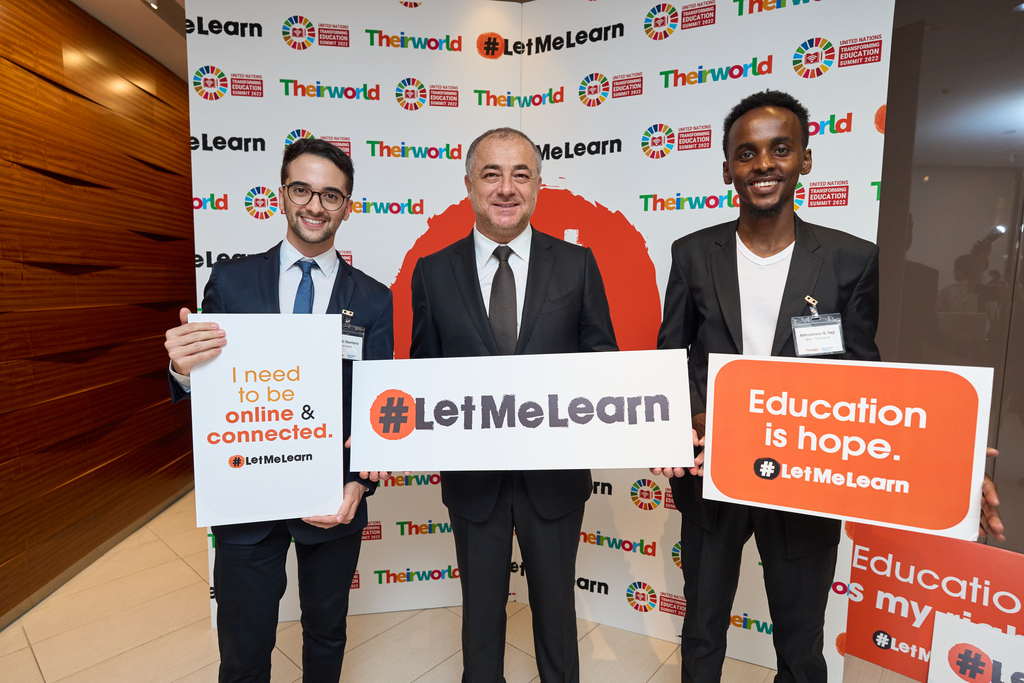
Gabriel Mointeiro, left, with former Lebanese Education Minister Elias Bou Saab and Global Youth Ambassador Ahmednoor Bashir Hajiis (Theirworld/Ilya Savenok)
What was it like to work with other young activists at the summit?
It has been an inspiring journey. I think we are so connected personally, because you get to see their histories. My friend Blessing Adogame, a fellow GYA on the trip with us, said as young leaders, we should take the pieces of our stories that are not good and use them as an inspiration for ourselves.
I’m finding it very useful to see myself again as a great person, as a great professional. We exchanged a lot, like recognising how education is interconnected to so many pressing issues of our world, – like climate action and inequalities.
Do you feel world leaders at the summit really listened to youth voices?
On a positive note, I think they could hear us. But I think having a separate day for young people was not a smart move, because we as young people should get to ask questions about things that word leaders have not thought about.
We should ensure that diversity and inclusion is at every table, at every summit on education or any other pressing issue we are facing in the world right now.
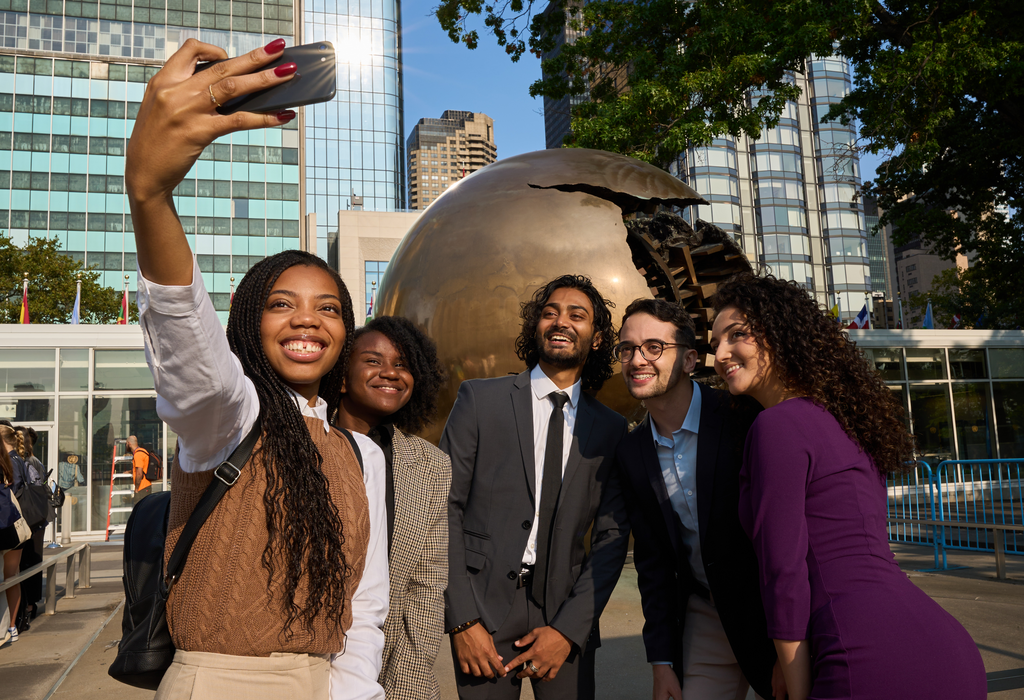
Global Youth Ambassadors Blessing Adogame, Mathilde Boulogne, Yuv Sungkur, Gabriel Monteiro and Jennifer Borrero and arrive at the UN for the Transforming Education Summit (Theirworld/Ilya Savenok)
Do you think the summit’s Youth Declaration was a breakthrough moment?
Yes, absolutely. The Youth Declaration had a tough mission to get inputs from every part of the world about education. But it managed somehow to put all those efforts together. I’m really grateful to be a part of this historic moment. I think we as young people needed to have an instrument like this to refer to.
What was your highlight of the summit?
Youth engagement was a central part. It’s so great because for 70 years we didn’t have an exclusive UN event just talking about education.
When you invite young people to be there, then you give them the chance to rewrite the path of education and the way education is provided to them. Not all young people could be here due to lack of support from their governments. But those who did attend talked extensively with their communities before getting here.
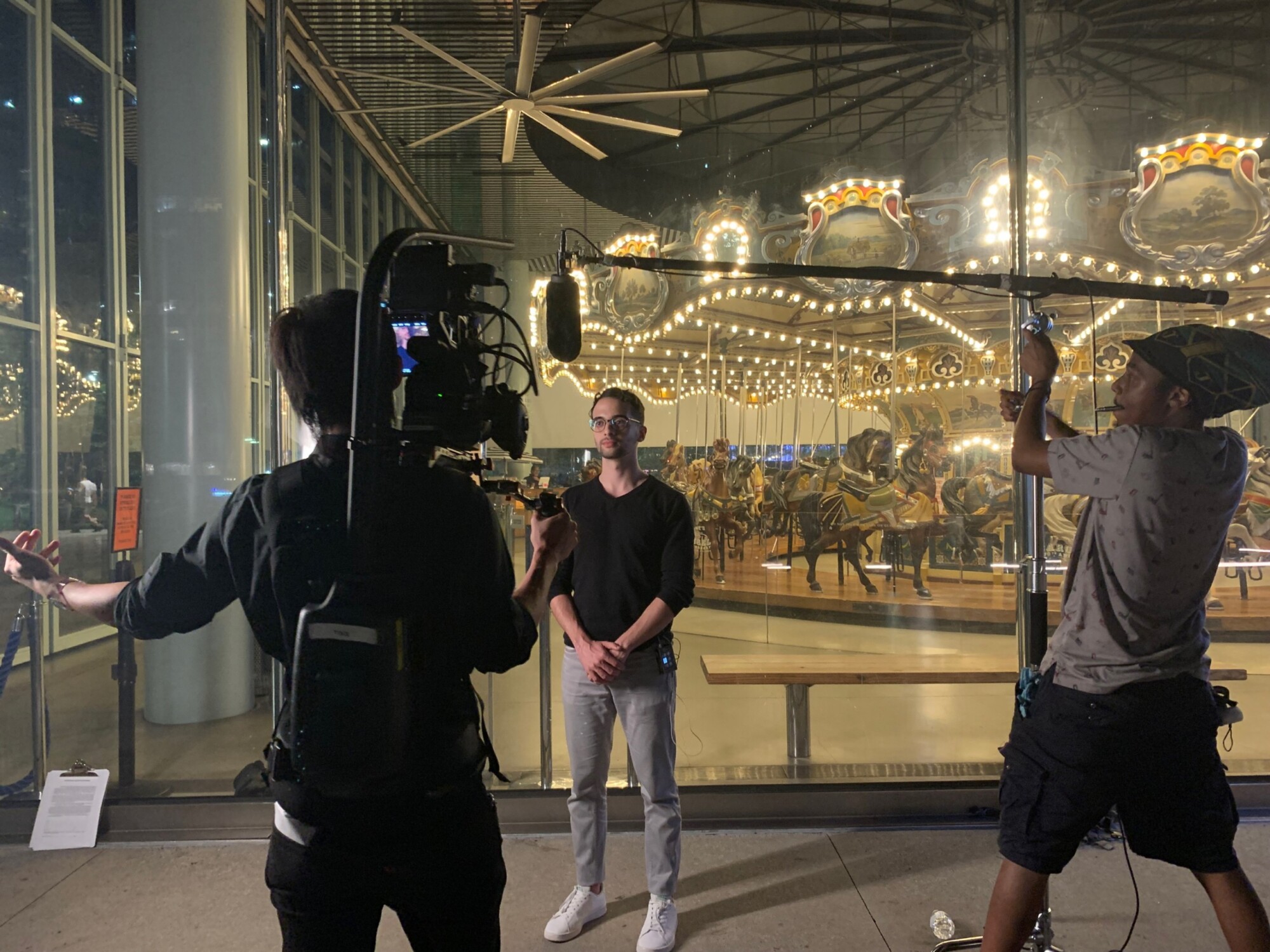
Global Youth Ambassador Gabriel Monteiro is filmed at the #LetMeLearn hologram installation in New York
Why do you feel it’s important to support the International Finance Facility for Education?
It is a part of a new global plan for funding. It can catalyse the amount of investment, so that each dollar donated by rich countries corresponds to $7 for low-middle-income countries. So it has this multiplying effect.
This is great because so many countries want to invest. They have great projects in education but unfortunately they don’t have enough money.
After I graduated as a lawyer, I became a human rights educator to raise awareness in my community. I found myself in a room of 25 girls who were going through extremely difficult and vulnerable situations, like hunger or potential sexual and drug trafficking.
I saw how vulnerabilities affect education and how the lack of support, funding and responsibility from government affects the lives of millions of girls like that.
The trick is how to use funds effectively – you can transform lives. Today 60% of those students are employed. I believe in the transformative power of education and that’s why I believe that funding is so important.
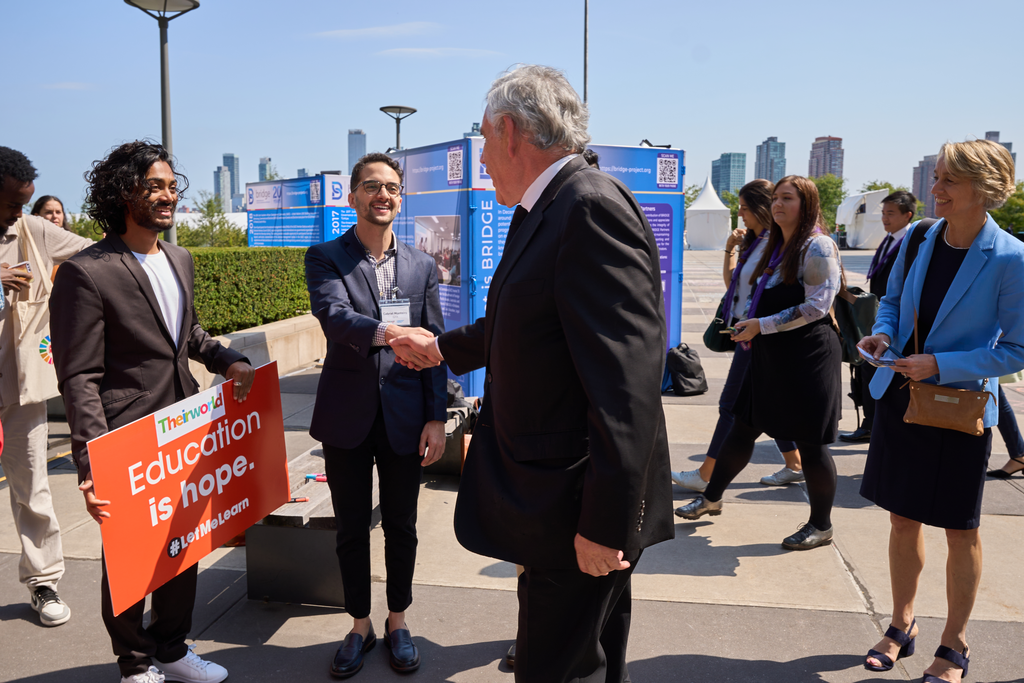
Global Youth Ambassador Gabriel Monteiro meets Gordon Brown, the UN Special Envoy for Global Education (Theirworld/Ilya Savenok)
What do you hope world leaders will take away from the summit?
It’s that any other pressing issue goes through education first. If you have to act on climate, you should address it inside education. I think leaders are paying more attention to how education is interconnected to so many other Sustainable Development Goals. It should be at the centre of the debate all the time.
What was your highlight of visiting New York?
It was my first time in the US. I never thought that I could make a dream come true just doing the work that I believe in. It’s been a journey of expanding myself and really opening myself to connections, to people that can really do something for the world.
Do you have any advice for other young people?
You should look to people that can support you. When you believe in yourself, things start happening in your life.
More news

